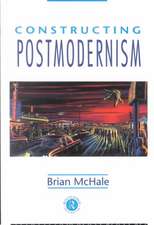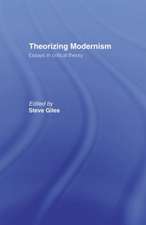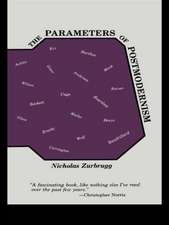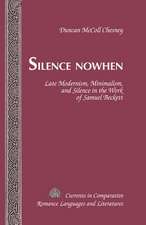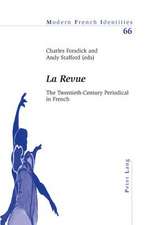Nabokov, History and the Texture of Time: Routledge Transnational Perspectives on American Literature
Autor Will Normanen Limba Engleză Hardback – 26 iul 2012
| Toate formatele și edițiile | Preț | Express |
|---|---|---|
| Paperback (1) | 416.22 lei 6-8 săpt. | |
| Taylor & Francis – 31 mai 2017 | 416.22 lei 6-8 săpt. | |
| Hardback (1) | 1053.95 lei 6-8 săpt. | |
| Taylor & Francis – 26 iul 2012 | 1053.95 lei 6-8 săpt. |
Din seria Routledge Transnational Perspectives on American Literature
-
 Preț: 389.38 lei
Preț: 389.38 lei - 22%
 Preț: 213.77 lei
Preț: 213.77 lei -
 Preț: 416.22 lei
Preț: 416.22 lei - 14%
 Preț: 324.02 lei
Preț: 324.02 lei - 14%
 Preț: 327.38 lei
Preț: 327.38 lei - 12%
 Preț: 325.34 lei
Preț: 325.34 lei - 18%
 Preț: 312.15 lei
Preț: 312.15 lei -
 Preț: 444.45 lei
Preț: 444.45 lei -
 Preț: 490.83 lei
Preț: 490.83 lei - 28%
 Preț: 824.40 lei
Preț: 824.40 lei - 18%
 Preț: 1056.00 lei
Preț: 1056.00 lei -
 Preț: 304.90 lei
Preț: 304.90 lei - 18%
 Preț: 1061.93 lei
Preț: 1061.93 lei -
 Preț: 464.54 lei
Preț: 464.54 lei -
 Preț: 449.41 lei
Preț: 449.41 lei -
 Preț: 464.54 lei
Preț: 464.54 lei - 18%
 Preț: 1000.27 lei
Preț: 1000.27 lei -
 Preț: 466.49 lei
Preț: 466.49 lei - 18%
 Preț: 1057.05 lei
Preț: 1057.05 lei -
 Preț: 451.41 lei
Preț: 451.41 lei -
 Preț: 428.46 lei
Preț: 428.46 lei -
 Preț: 278.72 lei
Preț: 278.72 lei -
 Preț: 441.95 lei
Preț: 441.95 lei -
 Preț: 487.86 lei
Preț: 487.86 lei - 18%
 Preț: 999.19 lei
Preț: 999.19 lei -
 Preț: 257.95 lei
Preț: 257.95 lei - 16%
 Preț: 325.63 lei
Preț: 325.63 lei - 18%
 Preț: 1052.38 lei
Preț: 1052.38 lei - 18%
 Preț: 1060.87 lei
Preț: 1060.87 lei - 18%
 Preț: 1061.57 lei
Preț: 1061.57 lei
Preț: 1053.95 lei
Preț vechi: 1285.31 lei
-18% Nou
Puncte Express: 1581
Preț estimativ în valută:
201.68€ • 212.07$ • 166.64£
201.68€ • 212.07$ • 166.64£
Carte tipărită la comandă
Livrare economică 17 aprilie-01 mai
Preluare comenzi: 021 569.72.76
Specificații
ISBN-13: 9780415539630
ISBN-10: 0415539633
Pagini: 222
Dimensiuni: 152 x 229 x 15 mm
Greutate: 0.43 kg
Ediția:1
Editura: Taylor & Francis
Colecția Routledge
Seria Routledge Transnational Perspectives on American Literature
Locul publicării:Oxford, United Kingdom
ISBN-10: 0415539633
Pagini: 222
Dimensiuni: 152 x 229 x 15 mm
Greutate: 0.43 kg
Ediția:1
Editura: Taylor & Francis
Colecția Routledge
Seria Routledge Transnational Perspectives on American Literature
Locul publicării:Oxford, United Kingdom
Public țintă
Postgraduate and UndergraduateCuprins
Preface 1. Nabokov in Literary History 2. The Real Life of Sebastian Knight and the Modernist Impasse 3. Nabokov, Benjamin and Historical Resistance 4. Totalitarian Time: The Struggle for Autonomy in Bend Sinister 5. Freudian Time: Lolita, Psychoanalysis and the Holocaust 6. Swiss Time: Cold War Pastoral in late Nabokov Conclusion: Reading Nabokov's Dialectics
Recenzii
"Will Norman’s Nabokov, History and the Texture of Time is a sustained demonstration of the importance of disobeying orders. Treating some of Nabokov’s most polemical statements with the informed scepticism other critics apply to instructions by Humbert, Norman demonstrates how deeply interested Nabokov is in schools of thought he claims to disdain and ignore." -- Rachel Trousdale, Agnes Scott College, Slavonic & East European Review
Descriere
This book argues that the apparent evasion of history in Vladimir Nabokov’s fiction conceals a profound engagement with social, and therefore political, temporalities. While Nabokov scholarship has long assumed the same position as Nabokov himself — that his works exist in a state of historical exceptionalism — this study restores the content, context, and commentary to Nabokovian time by reading his American work alongside the violent upheavals of twentieth-century ideological conflicts in Europe and the United States. This approach explores how the author’s characteristic temporal manipulations and distortions function as a defensive dialectic against history, an attempt to salvage fiction for autonomous aesthetics. Tracing Nabokov’s understanding of the relationship between history and aesthetics from nineteenth-century Russia through European modernism to the postwar American academy, the book offers detailed contextualized readings of Nabokov’s major writings, exploring the tensions, fissures, and failures in Nabokov’s attempts to assert aesthetic control over historical time. In reading his response to the rise of totalitarianism, the Holocaust, and Cold War, Norman redresses the commonly-expressed admiration for Nabokov’s heroic resistance to history by suggesting the ethical, aesthetic, and political costs of reading and writing in its denial. This book offers a rethinking of Nabokov’s location in literary history, the ideological impulses which inform his fiction, and the importance of temporal aesthetics in negotiating the matrices of modernism.

